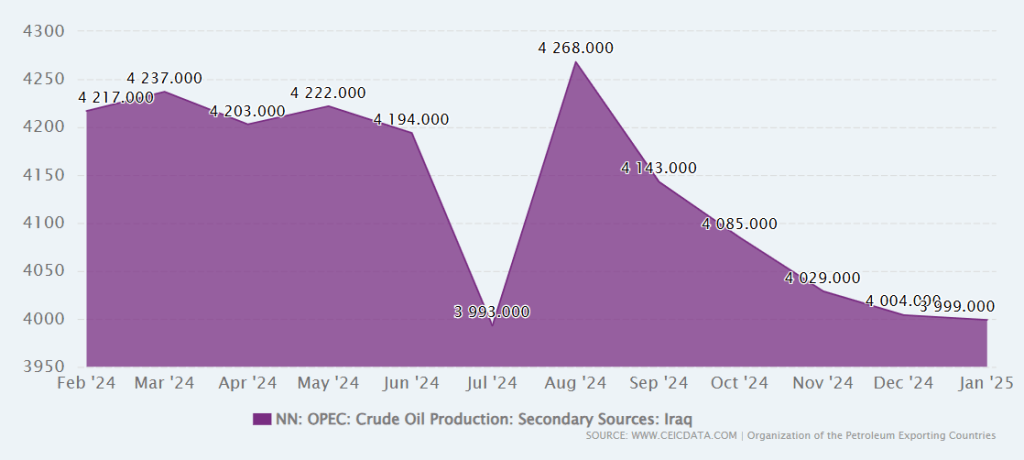Iraq has announced plans to resume Kurdish oil exports through the Iraq-Turkey pipeline, nearly two years after a legal dispute halted shipments.
The 185,000 barrels per day (bpd) restart comes after months of negotiations between Iraq’s federal government, the Kurdish Regional Government (KRG), and Turkey.
However, while Baghdad has completed its preparations, Turkey has not yet confirmed a date for reopening the pipeline, leaving the final step in Ankara’s hands.
$14 Billion in Losses Since 2023: Why Iraq Stopped Kurdish Oil Exports


According to Reuters, the exports were halted in March 2023, when an international court ruled that Turkey had violated a 1973 agreement by allowing the KRG to export oil independently, bypassing Iraq’s federal government.
As a result, Turkey shut down the pipeline, cutting off 450,000 bpd of Kurdish and Iraqi crude from global markets.
The shutdown cost Iraq an estimated $14 billion in lost revenue, while the KRG—heavily reliant on oil sales—faced severe financial difficulties. In response, Baghdad asserted full control over Kurdish oil sales, leading to the recent breakthrough that paved the way for exports to restart.
Global Oil Prices Drop as Markets React to Iraq’s Oil Export Resumption


Oil markets responded to Iraq’s announcement with a slight dip in prices. Arab News reported that Brent crude fell 14 cents to $74.29 per barrel, while U.S. West Texas Intermediate (WTI) crude dropped 22 cents to $70.18 per barrel.
Investors see the return of Kurdish oil as a potential stabilizing factor in an uncertain market.
With ongoing geopolitical crises in the Middle East and Ukraine, oil supply remains volatile, according to the World Bank and a study published in Nature. If Iraq’s exports resume as planned, it could help ease pressure on prices.
U.S. Pushed Iraq to Resume Oil Flow Amid Global Energy Concerns


According to Reuters, the United States has been urging Iraq to restart Kurdish oil exports, seeing it as a way to offset supply disruptions from Iran and Russia. Washington has played a role in negotiations, pushing for a swift resolution to reduce Western dependence on other oil producers.
With sanctions on Russian crude and Middle East tensions threatening energy stability, Iraq’s decision to resume oil exports is viewed as a positive step for global markets.
What’s Next? All Eyes on Turkey’s Response
The final decision now rests with Turkey, which must confirm when it will allow oil to flow again. Officials in Ankara have pointed to technical reviews and contract renegotiations as reasons for the delay, and some analysts suggest Turkey may use the situation to negotiate better transit fees or political concessions from Iraq, Reuters reported.
WE ALSO SAID: Don’t Miss… Israel Partially Withdraws From South Lebanon, Despite Deadline



